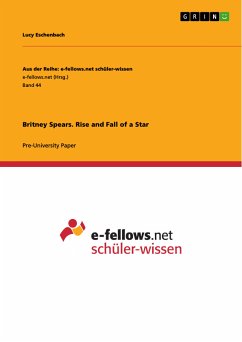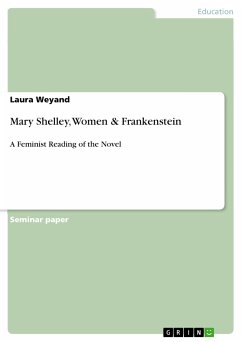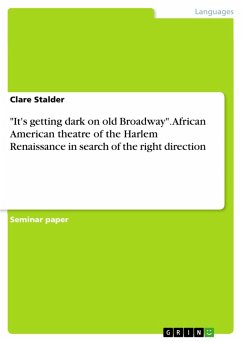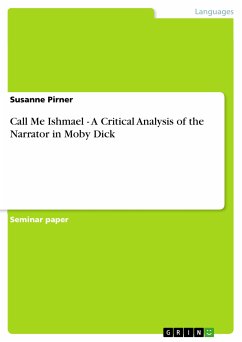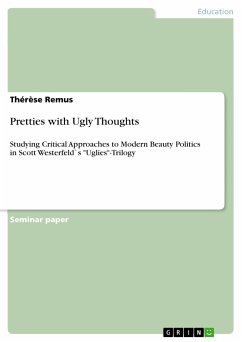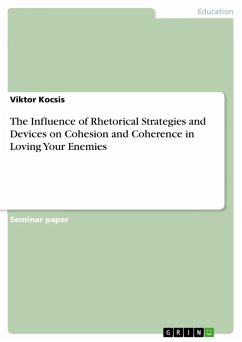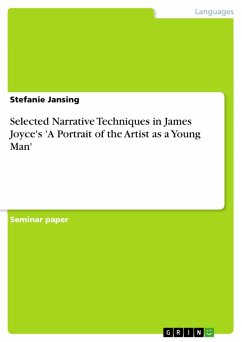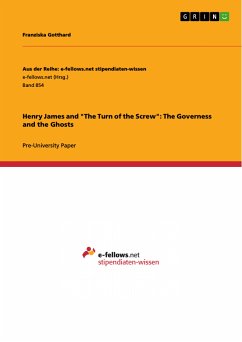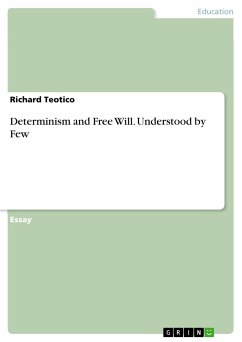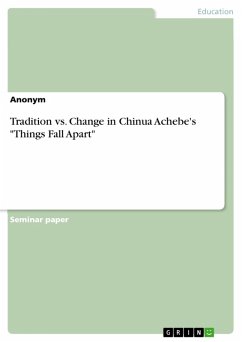
Tradition vs. Change in Chinua Achebe's "Things Fall Apart" (eBook, PDF)

PAYBACK Punkte
0 °P sammeln!
Seminar paper from the year 2002 in the subject Didactics for the subject English - Literature, Works, grade: A (USA = 1), Southern Connecticut State University (English Department), course: The Contemporary African Novel, language: English, abstract: [...] Things Fall Apart is a story about personal beliefs and customs and also a story about conflict. There is struggle between family, culture, and religion of the Igbo people which is all brought on by a difference in personal beliefs and customs. Finally, we see how things fall apart when these beliefs and customs are confronted by those of t...
Seminar paper from the year 2002 in the subject Didactics for the subject English - Literature, Works, grade: A (USA = 1), Southern Connecticut State University (English Department), course: The Contemporary African Novel, language: English, abstract: [...] Things Fall Apart is a story about personal beliefs and customs and also a story about conflict. There is struggle between family, culture, and religion of the Igbo people which is all brought on by a difference in personal beliefs and customs. Finally, we see how things fall apart when these beliefs and customs are confronted by those of the white missionaries. According to Ernest N. Emenyonu, Things Fall Apart is a classic study of crosscultural misunderstanding and the consequences to the rest of humanity, when a belligerent culture or civilization, out of sheer arrogance and ethnocentrism, takes it upon itself to invade another culture, another civilization (p.84). Chinua Achebe is a product of both, native African and European culture. Achebe's education in English and exposure to European customs have allowed him to capture at the same time the European and the African perspectives on colonial expansion, religion, race, and culture. This has a great effect on the composition of the novel because he is able to tell the story with an understanding and personal experiences in both cultures. He does not portray the African culture and their beliefs as barbaric. He simply tells it as it is and how things happened. Chinua Achebe states that neither of the cultures were bad, but they simply had a difference in beliefs. In the first section of this paper I would like to outline some important aspects of the traditional Igbo culture as presented in Things Fall Apart. Achebe argues that the white man has destroyed Igbo culture out of ignorance of the people's way of life and the white man's inability to speak the people's language. The second section deals with Christianity and the colonizers. I will compare the Igbo systems to a certain ext ent to the new system the white man brought to Nigeria. Later on, I will examine the effects of the colonizers' arrival and their religion on the indigenous culture, giving special attention to Okonkwo, the main character of the novel.
Dieser Download kann aus rechtlichen Gründen nur mit Rechnungsadresse in A, B, BG, CY, CZ, D, DK, EW, E, FIN, F, GR, HR, H, IRL, I, LT, L, LR, M, NL, PL, P, R, S, SLO, SK ausgeliefert werden.




